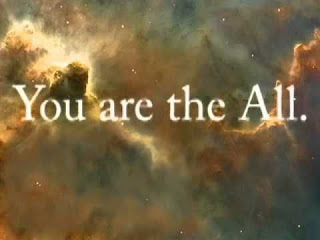(Actually chapter 15 in the book) Today's topic: CREATION.
Some points are very clear in scripture and broadly agreed upon, other questions have many varying viewpoints among evangelical Christians.

This is the doctrine of creation: "(1)God created the entire universe out of nothing;(2) it was originally very good;(3) and he created it to glorify himself."
1. Several places in the Bible affirm that God is the one who created all things, and before that only he existed. By His will (Revelations 4:11) all things were created.
God not only made the earth, but he made the spiritual realms, i.e. heaven, angels, etc.
God created Adam and Eve specially, and as such, it would be hard for Christians to claim that they came about as part of a long evolutionary process. Although humans are like animals in many ways, we are very different in the sense that we are created "in God's image."
God didnt just create the heavens and earth but also....Time: God created time, whereas he lived in his own way (without time?) before.
"The fact that God created time reminds us of his lordship over it and our obligation to use it for his glory."

The trinity worked together in creation. John 1:3 says that all things were made through Jesus. The spirit of God is generally seen as completing, filling, and giving life to God's creation.
Creation is distinct from God yet always dependent on God. He made everything and is above it all, yet creation is continually dependent on him for its existence and functioning. God is IMMANENT (remains in creation.)
Job 12:10, In his hand is the life of every living thing and the breath of all mankind.
Lots of other philosophies try to distort this beautiful relationship.
God is over creation, Christianity
The universe is all there is, Materialism (no God)
God is everything, Pantheism (for example Buddhism)
God and the universe eternally exist separately, side by side, Dualism. (for example, new age)
God is not directly involved in creation nowadays, Deism (sometimes nominal Christians).

2. God created the universe to show his Glory.
What does creation show about God? It shows his great power and wisdom, far above anything that could be imagined by any creature. But, God was NOT incomplete without the glory that he would recieve from the created universe. The universe does not fulfill God. God did however, create the universe to delight in it.
This explains why we take spontaneous delight in all sorts of creative activities ourselves. ....that is an amazing aspect of humanity, compared to other creatures, that we can create new things.
God delighted in his creation, and called it "good," as he created each day. Even after sin entered the world, God's creation is still good and should be appreciated.

As scientists have made new discoveries, it has caused Christians to reevaluate what earlier generations thought the scripture had said. So it is always important to look closely what Scripture actually says on a scientific issue, an not just what Christians through history have translated it to say.
We must remember, in the question of the age of the earth and such questions, that all pronouncements by scientists are at best educated speculation.
To come next time: principles by which the relationship between creation and the finding of modern science can be approached.
Some points are very clear in scripture and broadly agreed upon, other questions have many varying viewpoints among evangelical Christians.

This is the doctrine of creation: "(1)God created the entire universe out of nothing;(2) it was originally very good;(3) and he created it to glorify himself."
1. Several places in the Bible affirm that God is the one who created all things, and before that only he existed. By His will (Revelations 4:11) all things were created.
God not only made the earth, but he made the spiritual realms, i.e. heaven, angels, etc.
God created Adam and Eve specially, and as such, it would be hard for Christians to claim that they came about as part of a long evolutionary process. Although humans are like animals in many ways, we are very different in the sense that we are created "in God's image."
God didnt just create the heavens and earth but also....Time: God created time, whereas he lived in his own way (without time?) before.
"The fact that God created time reminds us of his lordship over it and our obligation to use it for his glory."

The trinity worked together in creation. John 1:3 says that all things were made through Jesus. The spirit of God is generally seen as completing, filling, and giving life to God's creation.
Creation is distinct from God yet always dependent on God. He made everything and is above it all, yet creation is continually dependent on him for its existence and functioning. God is IMMANENT (remains in creation.)
Job 12:10, In his hand is the life of every living thing and the breath of all mankind.
Lots of other philosophies try to distort this beautiful relationship.
God is over creation, Christianity
The universe is all there is, Materialism (no God)
God is everything, Pantheism (for example Buddhism)
God and the universe eternally exist separately, side by side, Dualism. (for example, new age)
God is not directly involved in creation nowadays, Deism (sometimes nominal Christians).

2. God created the universe to show his Glory.
What does creation show about God? It shows his great power and wisdom, far above anything that could be imagined by any creature. But, God was NOT incomplete without the glory that he would recieve from the created universe. The universe does not fulfill God. God did however, create the universe to delight in it.
This explains why we take spontaneous delight in all sorts of creative activities ourselves. ....that is an amazing aspect of humanity, compared to other creatures, that we can create new things.
God delighted in his creation, and called it "good," as he created each day. Even after sin entered the world, God's creation is still good and should be appreciated.

As scientists have made new discoveries, it has caused Christians to reevaluate what earlier generations thought the scripture had said. So it is always important to look closely what Scripture actually says on a scientific issue, an not just what Christians through history have translated it to say.
We must remember, in the question of the age of the earth and such questions, that all pronouncements by scientists are at best educated speculation.
To come next time: principles by which the relationship between creation and the finding of modern science can be approached.






